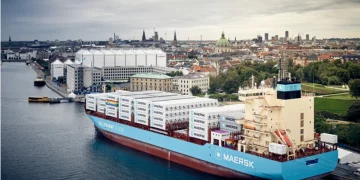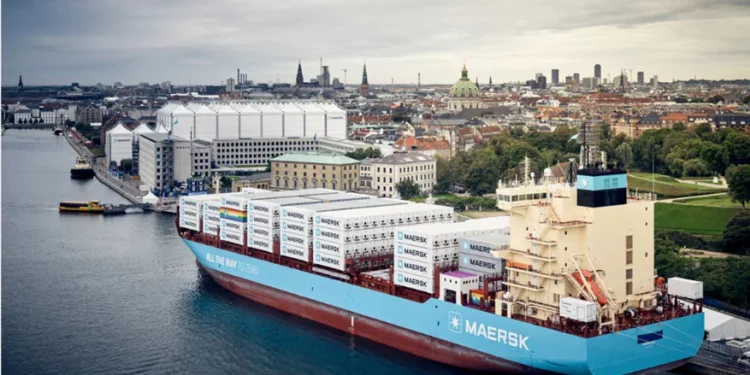Danish shipping giant Maersk suspends key Russia service, citing ongoing sanctions and operational challenges.
Maersk, the world’s largest container shipping company, has announced the suspension of its main shipping route to Russia. This significant move comes amidst ongoing sanctions imposed on Russia by Western nations following the invasion of Ukraine, and the resulting logistical and operational challenges.
Caught in the Crossfire:
Maersk’s decision to suspend its Russia service reflects the complex challenges shipping companies face due to the ongoing war:
- Sanctions Impact: Sanctions imposed on Russia have made it difficult for shipping companies to operate in the country, with restrictions on financial transactions and cargo types.
- Operational Disruptions: The war in Ukraine has disrupted logistical networks and port operations, making it increasingly difficult to ensure smooth cargo movement to and from Russia.
- Safety and Security Concerns: The overall safety and security situation in the region is a significant concern for shipping companies and their crews.
The Fallout of Maersk’s Decision:
Maersk’s decision to suspend its Russia service will have several consequences:
- Impact on Russian Trade: The suspension will disrupt the flow of goods into and out of Russia, potentially impacting businesses that rely on these routes.
- Supply Chain Disruptions: This move adds to existing supply chain disruptions caused by the war, potentially leading to higher shipping costs and product shortages for some consumers.
- Pressure on Other Shipping Companies: Maersk’s decision may put pressure on other shipping companies to reassess their operations in Russia.
Uncertainties Remain:
The future of Maersk’s Russia service and the shipping industry’s operations in the region remain uncertain:
- Duration of Suspension: It’s unclear how long Maersk’s suspension will last, depending on the evolving situation in Ukraine and potential changes in sanctions.
- Impact on Global Trade: The long-term impact of the war and sanctions on global trade patterns is yet to be fully understood.
- Alternative Routes and Solutions: Shipping companies may explore alternative routes or logistical solutions to maintain some level of service to Russia.
A Difficult Decision in a Complex Situation:
Maersk’s decision to suspend its Russia service is a difficult one, but reflects the challenging situation created by the war in Ukraine:
- Prioritizing Safety and Compliance: Maersk prioritizes the safety of its crew and ensuring compliance with international sanctions.
- Adapting to Changing Circumstances: The shipping industry must adapt to the rapidly evolving geopolitical landscape.
- Focus on Long-Term Sustainability: Maersk’s decision may reflect a strategic shift to focus on more stable and sustainable operations.























